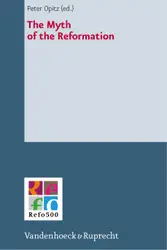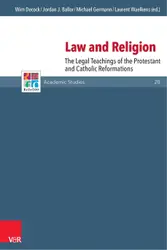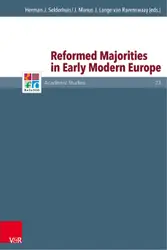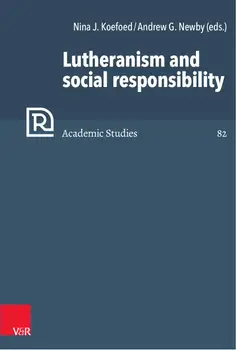The contributions in this volume enter the debate about the way in which the provision of poor relief can be influenced by its national confessional context. They bring new perspectives to the understanding of theological aspects of Lutheranism, such as the connection between justification by faith alone and care for the poor, and work and work ethics. The articles also analyse the implementation of social responsibility of the authority towards different categories of poor ('deserving' and 'undeserving'), local administration and centralization of poor relief through connections of public and private sources of funding, and collaboration between state, church and civil society through different public and private aspects of poor relief. In this way the various contributions combine to demonstrate new ways in the study of the connection between confessional specifics and historical developments through detailed knowledge of theology, supported by concrete historical case studies.
Starten Sie noch heute mit diesem Buch für CHF 0
- Hol dir während der Probezeit vollen Zugriff auf alle Bücher in der App
- Keine Verpflichtungen, du kannst jederzeit kündigen
Reihe:
Band 82 in Refo500 Academic Studies (R5AS)Sprache:
Englisch
Format:

Philip Melanchthon : Theologian in Classroom, Confession, and Controversy
Irene Dingel, Timothy J. Wengert, Robert Kolb, Nicole Kuropka
book
The Myth of the Reformation
book
Calvin and Luther: The Continuing Relationship
book
Augustine of Hippo and Martin Luther on Original Sin and Justification of the Sinner
Jairzinho Lopes Pereira
book
In-visibility : Reflections upon Visibility and Transcendence in Theology, Philosophy and the Arts
book
Law and Religion : The Legal Teachings of the Protestant and Catholic Reformations
book
Preparing for Death, Remembering the Dead
book
Reformed Majorities in Early Modern Europe
book
The Spirituality of the Heidelberg Catechism : Papers of the International Conference on the Heidelberg Catechism Held in Apeldoorn 2013
book
Latomus and Luther : The Debate: Is every Good Deed a Sin?
Anna Vind
book
Underground Protestantism in Sixteenth Century Spain : A Much Ignored Side of Spanish History
Frances Luttikhuizen
book
Nineteenth-Century Lutheran Theologians
book
